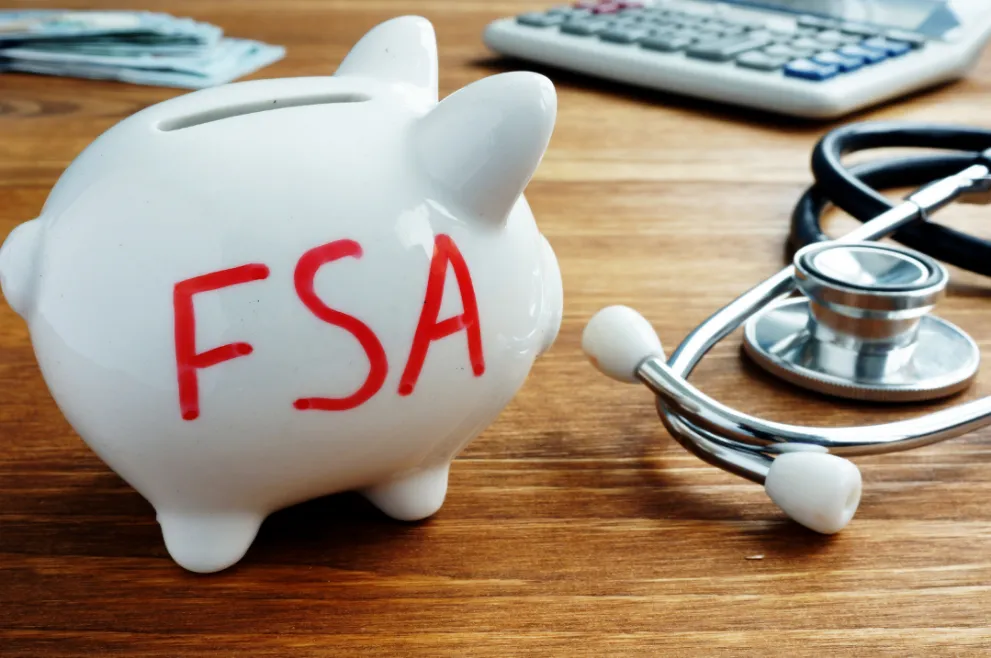Written and medically reviewed by Dorcas Morak, Pharm.D
Navigating the healthcare landscape involves understanding the financial mechanisms to manage medical expenses. Among these tools is the Health Savings Account (HSA), a valuable resource for individuals with high-deductible health plans (HDHPs). A common question many HSA holders have is whether they can use their account funds for prescription medications. Here is what you need to know.
How Does an HSA Work?
A Health Savings Account (HSA) is a tax-advantaged account for individuals with high-deductible health plans (HDHPs). Contributions to HSA are tax-deductible, and withdrawals for eligible medical expenses, including prescriptions, are tax-free. The individual owns an HSA, which remains with you regardless of employment changes and is portable.
What are HSA Eligible Prescription Expenses?
When using your HSA for prescriptions, the range of eligible expenses is broad and specific. The IRS defines qualified medical expenses as costs incurred for diagnosis, cure, mitigation, treatment, or disease prevention, including prescription medications. Examples of covered medications include:
- Prescription Drugs
- Over-the-counter (OTC) Medications with a Prescription
- Insulin
- Birth Control
- Smoking Cessation and Prescription Weight Loss Drugs
Can I Use the HSA Fund to Purchase Vitamins?
Vitamins and supplements are not eligible expenses under Health Savings Accounts (HSAs) unless a healthcare provider prescribes them to treat a specific health condition.
Is Tylenol HSA Eligible?
Tylenol is eligible for purchase using an HSA. You can buy Tylenol and similar over-the-counter (OTC) medications with your HSA. The eligibility of OTC medicines like Tylenol resulted from the enactment of the Affordable Care Act (ACA) in 2010, which broadened the range of qualified medical expenses for HSAs.
How Do I Use a HSA for Prescription Expenses?
Using your Health Savings Account (HSA) for prescription costs is simple, but adhering to the correct guidelines for smooth transactions and compliance is crucial.
These are the steps for using your HSA funds for prescriptions: 1.Verify Eligibility: Before purchasing, ensure that the drug qualifies as an eligible expense according to HSA guidelines. 2.HSA Card Usage: Present your HSA card during payment when making pharmacy purchases. It operates like a debit card, deducting funds directly from your HSA. 3.Reimbursement Procedure: If you pay for an out-of-pocket prescription, you can reimburse yourself from your HSA. Maintain all receipts and follow the reimbursement request process outlined by your HSA provider.
What Happens If I Use My HSA Card For Non-Medical Expenses?
If you mistakenly use your Health Savings Account (HSA) card for non-medical expenses, several consequences could occur:
- Taxation and Penalties: The funds spent on ineligible expenses before age 65 are subject to income taxes and typically incur a penalty, often set at 20%.
- Corrective Action: It's essential to rectify the mistake by reimbursing your HSA for the amount spent on the non-eligible expense.
- Reporting Obligations: You may be required to report the non-medical expense amount on your tax return.
Can I use my HSA with a RxLess prescription discount coupon?
Yes, you can typically use your Health Savings Account (HSA) in conjunction with a RxLess prescription discount card or coupon. Using this prescription discount card or coupon, or better yet, joining the RxLess Assurance Plan by simply downloading the app, will ensure you get the most accurate discounts with our real-time price finder. This can significantly reduce the cost of your prescriptions. Since HSA funds can be utilized for qualified medical expenses, including prescription drugs, combining them can offer significant financial benefits. Nevertheless, it's wise to verify with both your HSA provider to confirm there are no specific restrictions or limitations in place.
















